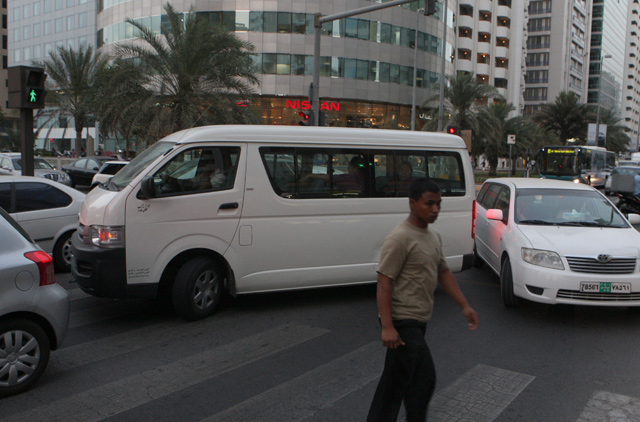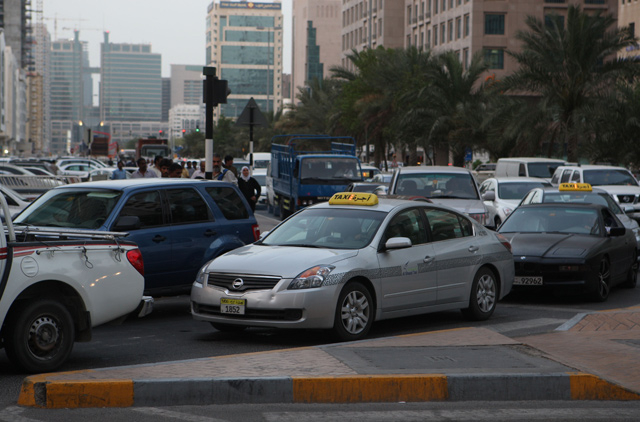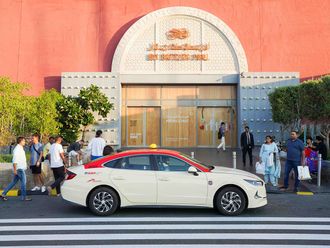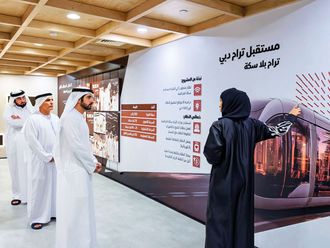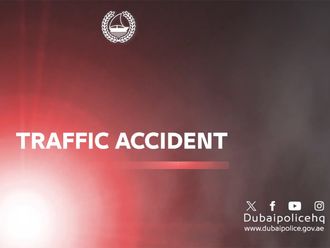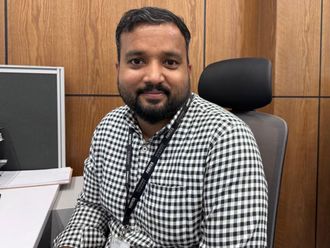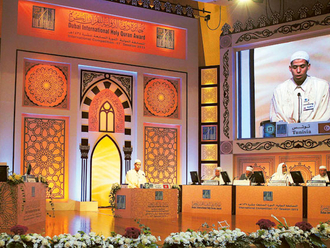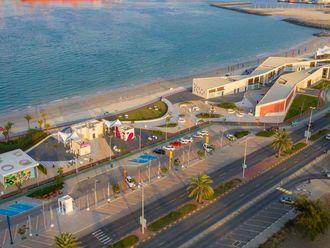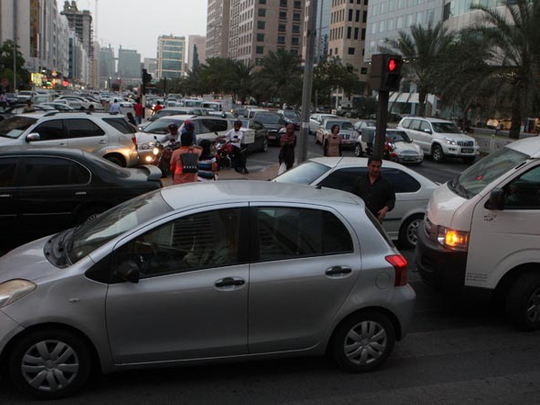
Abu Dhabi: The five-hour-long traffic chaos witnessed in Abu Dhabi city on Tuesday evening was caused by the breakdown of a crane passing through the city that blocked an intersection, according to Abu Dhabi Municipality.
It was not clear whether delay in removing the "failed crane" caused the chaos as the municipality did not explain it and senior Traffic Police Officials were not available for comments. However, an Abu Dhabi Police offcial confirmed that no road accidents caused the bottleneck.
The problems began around 5pm and continued till 10pm and many motorists were stuck on the roads for several hours, according to the residents.
The major roads inside the city-Muroor Road, Najdah Street, Hamdan Street, Airport Road, Passport Road, Khalifa Street and Corniche Road witnessed the bottleneck and policemen took over the control of vehicular movement at all the intersections on those roads, motorists said.
A statement issued by Abu Dhabi Munciplality said neither the failure of traffic signals nor any unannounced detours caused the problem. "Traffic signals have been working perfectly and the municipality never make any detours without informing the public in advance," according to the municipality. The breakdown of a crane—which blocked the intersection C 11 near Abu Dhabi Islamic Bank near Najdah street—was the root cause of the problems, the municipality said.
The truck blocked the traffic on that road which caused the bottlenecks on nearby roads inside the city, the statement said.
"We are deeply concerned about the traffic congestion which caused inconvenience to the public. The municipality took immediate action as soon the problem was notified," the statement said.
Traffic Control Centre of the municipality adjusted the green signal to allow the flow of maximum number of vehicles. "We have been coordinating with the Abu Dhabi Police to control the situation". The Municipality blamed the misbehaviour of some motorists for escalating the chaos.
Lieutenant Colonel Mohammad Al Nuaimi, the head of Quick Intervention Unit (QIU) of Abu Dhabi Police, which is responsible for emergency response alone told Gulf News that road accidents were not the cause of the congestion. The QIU could not explain the cause of the congestion as it falls under the responsibility of Traffic Control Authorities of Abu Dhabi Police.
Despite repeated attempts by Gulf News, senior traffic police officials were not available for comments. But a traffic police official on the street told Gulf News that owing to an important event on Yas Island, the Shaikh Khalifa expressway through Saadiyath-Yas Islands was blocked and all the heavy vehicles were diverted through Salam Street .
That caused the bottleneck on the Salam Street which is running through the city, he said. A part of the Corniche Road has been blocked due to the upgrading of certain facilities, also contributed to the bottleneck. Meanwhile, traffic through the Corniche Road was diverted for the movement of some VIPs, he added.
Long-term residents told Gulf News that they never witnessed such a traffic bottleneck in the city during the past two decades.
"I took almost one-and-half hour to drive just one-and-half kilo meter from Muroor Street- Passport road intersection to the corncihe road," said A. M . Latheef, an Indian resident.
"I noticed that traffic lights were working but the policemen were manually controlling the vehicles at the intersections", he said.
"I never witnessed such a traffic block in my 26 years of life in the city," said Latheef who works as a bus driver with an oil company.
Noha Tahan, 45, a Canadian Office Manager said it actually seemed very dangerous to drive. "I'm glad I didn't get into an accident. People even stopped using the traffic lights, instead the cops were on the street to control traffic flow," he said.
Anwar Semaan, 44, a Palestinian businessman said that everyone on the streets was angry and tense.
"Cars were crossing red lights, because the streets were so crowded. Every time you try to take a different route to escape the congestion, you realise that all the roads are blocked" . He said people waiting for taxis were the most unfortunate, because they were standing for a long time, and no taxis could reach them.
"Even the bus route was stopped. At least people in their cars have air conditioning, but the people waiting for public transport were out in the heat," said Semaan.
With inputs from Hiba Haddad, Staff Reporter


